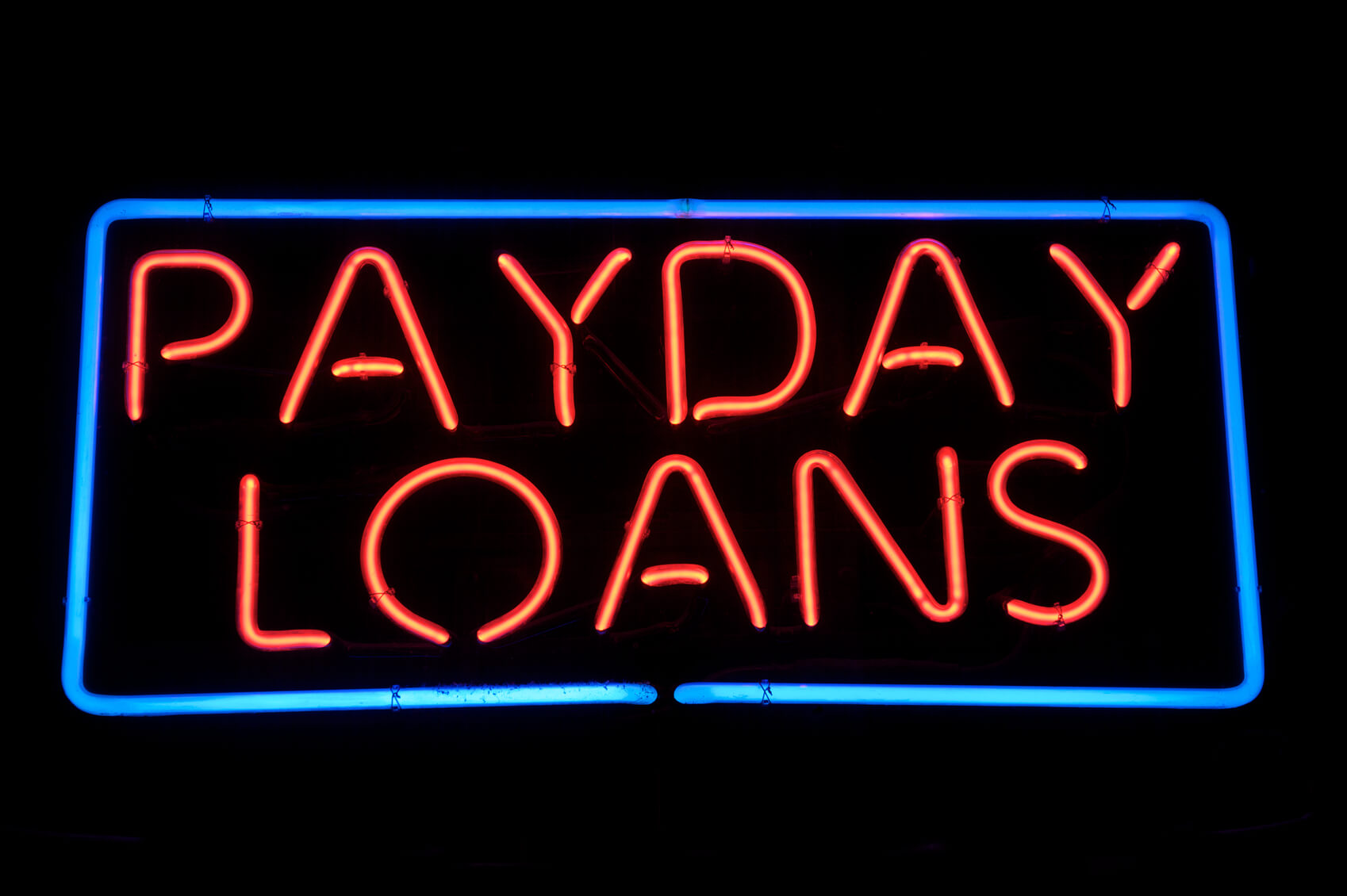
Debt comes in many forms—mortgages, car loans, student loans and credit cards to name a few. One type of loan is in the news now because some believe it is predatory.
What are Payday Loans?
Payday loans, also known as small-dollar loans, are short-term loans usually given for an amount of $500 or less. Consumers are required to pay them back when they get their next paycheck or at another time agreed to by the lender. These are not the type of loans you get at a bank. Payday lenders usually set up in storefronts or are online.
The Pros and Cons of Payday Lending
A 2015 report from the Federal Reserve Bank said that 46% of adults could not handle a $400 emergency expense and they would have to borrow money or sell something to pay for it. Not everyone has good credit and can go to a bank or apply for and get a credit card.
That’s often the market for payday lenders—those who are not served or are underserved by banks and who have poor credit. These borrowers often don’t have friends or family who can help them. For those who need the money for a true emergency and can pay it back with the interest by the next payday, this is a good option.
But it’s not a good option for those who can’t pay back the loan. The interest continues to accrue, in some cases as high as 900%. Borrowers will keep getting deeper and deeper in debt to the payday loan company.
Regulators say it’s because lenders are not doing a good job of determining if the borrowers can repay the loans. The Consumer Financial Protection Bureau (CFPB) announced a payday lending rule in 2017 that would limit the number of loans a person can take out during a certain amount of time and require lenders to look more closely at the borrower’s ability to pay.
In January the CFPB, under new leadership, announced the rule was being reviewed, essentially delaying is effective date of 2019.
Where are Payday Loans Illegal?
Payday loans are illegal in 14 states and the District of Columbia. In Georgia, payday lending is a felony.
While the CFPB is reviewing its payday lending rule, other states are taking action.
- Florida lawmakers passed a bill allowing payday loans of up to $1,000 and extending the repayment to 60 or 90 days.
- On the other hand, Alabama lawmakers are considering a bill to extend the life of a payday loan from 10 to 30 days and reduce the interest lenders can pay. The bill is in a House committee.
- A group of Ohio residents are asking lawmakers there for a referendum that would place restrictions on payday lenders.
- Missouri lawmakers discussed payday lending in a committee but decided not to make major changes. They are waiting to see what the CFPB does.
- Colorado residents may have an opportunity to vote on a payday lending rule in November. The rule will cap interest rates at 36%. The current average is about 129%. Colorado residents approved a payday lending referendum in 2010 that allowed borrowers to only take out a loan that was 5% or less of their income and give them six months to repay it. Recent studies show that one in four payday loans in the state are in default.
Alternatives to Payday Loans
Most people who need a payday loan are in desperate situations and may think payday loans are their only option. But there are a few alternatives:
- Sell some items you don’t need. Social media is full of local “yard sale” sites where you can sell things quickly. Avoid pawning items if you can because you will get little money for your item and pay a high fee to get it back.
- Ask your boss for an advance in your paycheck. He or she may say “no” but it can’t hurt to ask.
- Check online. Many companies offer loans online but are careful. Some also have high-interest rates.
- Debt relief programs can get you out of debt within 24-36 months on average. Right here at Golden Financial Services, we have a full array of debt relief programs to choose from. Try this national debt relief program calculator to get a quote on each plan.
Finally, the old saying “An ounce of prevention is worth a pound of cure” is true for your financial picture. These are things you have heard before but may not have heeded. Save as much as you can. Cut back on unnecessary expenses. Make a budget and stick to it.
If you are in over your head with credit card or other debt, consider debt relief as a way to save money and avoid high-interest payday lending. Not only will you have some extra cash for a rainy day, you could save money on interest and loan payments, too.

